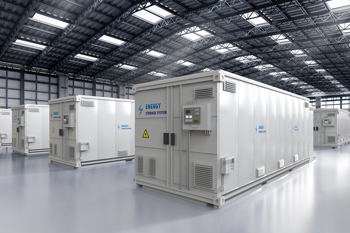Regulation of Utility Scale Battery Energy Storage Systems


Effective July 1, 2023, House Enrolled Act 1173 created a statutory framework in Indiana to regulate Utility Scale Battery Energy Storage Systems (BESS). In this legislation, IDHS was charged with enforcement authority and the Fire Prevention and Building Safety Commission was authorized to adopt rules to implement its requirements.
In general, this legislation regulates energy storage systems that are “capable of storing and releasing more than one (1) megawatt of electrical energy for a minimum of one (1) hour using an AC inverter and DC storage." However, exempt from this definition are:
- foundations or property used to directly or indirectly connect the AC inverter or DC storage of such a system to electrical energy production equipment or to a customer's meter;
- energy storage systems that are used for the purpose of providing electricity to meet or offset all or part of a host operation's energy needs;
- battery recycling facilities; and
- the manufacturing or storage of batteries by an automobile manufacturer.
Requirements
For those systems that are covered by this framework, by law, the following requirements apply:
- After June 30, 2023, prior to installing, or expanding the capacity of a system by more than 10% of its original capacity, IDHS must approve the installation or expansion.
- Prior to operating a system installed after June 30, 2023, IDHS must approve the ability to operate.
- All systems installed prior to July 1, 2023, must submit a registration notice to IDHS by January 1, 2024.
- Operators of systems must provide responding fire departments copies of emergency response plans and offer annual training.
In addition to these requirements, the legislation generally requires compliance with NFPA 855. Copies of this standard and the legislation are available online:
Application
To file an application (installation, expansion or operation) or notice, you must complete the online form:
